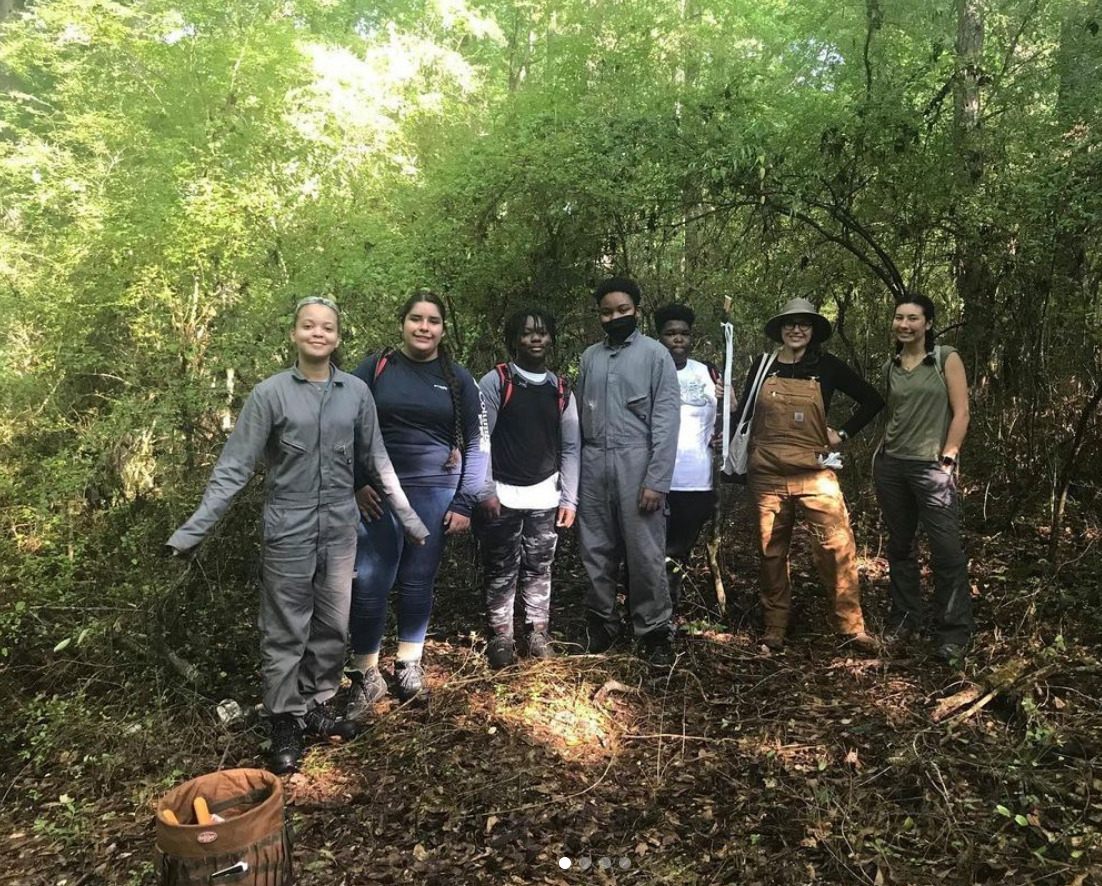Planted in 1929, the iconic hedges that surround Dooley Field at Sanford Stadium are a symbol of the University of Georgia. But these dark green, manicured shrubs aren’t Georgian at all. They’re Chinese privet, a semi-evergreen, thick shrub that swallows forests and threatens native species.
Invasive plants are nonnative plants that threaten native species and economic health. Entering the United States in the 1800s from Asia, nonnative privet has since spread throughout the southeastern U.S., according to the National Invasive Species Information Center. In 2017, nonnative privet accounted for over 679,000 acres of Georgia land and tops the list of the Georgia Forestry Commission’s Dirty Dozen List. Invasive species are a threat to native plants and animals because they are able to spread in an ecosystem quickly.
Why It’s Newsworthy: Nonnative privet is the number one invasive plant species in Georgia, and knowing the difference between native and nonnative plant species is vital for proper land management.
According to David Clabo, assistant professor of silviculture outreach for the Warnell School of Forestry and Natural Resources at UGA, invasive species, especially privet, pose a threat to native species that contribute to our diverse ecosystem and economy. For example, privet interferes with the long-term growth of Georgia forests because they use the water and sunlight that saplings need to grow into mature trees. When left undisturbed, privet can grow up to 30 feet tall which can shade out the understory of new trees and other plants.
Naturally or human-disturbed areas are ideal for invasive species compared to an undisturbed forest, according to Clabo. With trees and other plants uprooted from a storm, prime growing conditions are exposed for fast growers like privet, using the sun, water and soil resources that could’ve gone to native plants that naturally would’ve grown with those resources.
“Anytime there’s bare mineral soil exposed with a disturbance around urban areas, a lot of times that’s going to be a prime area for invasive plants to establish,” Clabo said.
Young Conservation Stewards
In response to invasives, local nonprofit Athens Land Trust has organized against the threat of invasives in public green spaces. The Athens Land Trust has an annual summer youth program called the Young Conservation Stewards, or YCS, which employs a group of high school students to learn about invasive plant management and help manage infestations on public lands.
The participants, who come primarily from low-income families and minority groups, have the opportunity to develop conservation skills and work experience.
Carly Evans, conservation specialist at the Athens Land Trust since 2019, led the summer program in 2020 and 2021. Evans and other guest speakers from the Athens-Clarke County Sustainability Office teach YCS participants about invasive species in Georgia, how to remove them and introduce the students to community leaders who work in conservation.
“Clearing out a park that is accessed by neighborhoods of color and low income neighborhoods is part of that environmental justice work. Creating healthy, natural, green spaces that are accessible to communities of color is so important,” Evans said.
Despite the ongoing coronavirus pandemic, the six teenagers cleared an estimated three acres of privet in Southeast Clarke Park in 2021 and built a trail in the restored space.
Privet Management Techniques
There are different ways to remove privet, but the Young Conservation Stewards utilize the “cut-stump” method. Using loppers and personal protective gear, the plant is cut close to the base and sprayed with an herbicide within 15 seconds of the cut. The herbicide contains glyphosate, a chemical that kills and prevents privet from sprouting. Spot-treating with an herbicide and physically removing the privet ensures that the plant cannot spread as easily to other areas.
Glyphosate has been the source of controversy because of a legal settlement with agrochemical company Monsanto. Some studies have shown that glyphosate could be carcinogenic, although organizations like the Environmental Protection Agency have stated there are no risks of concern to human health if glyphosate is used with protective equipment.
“Glyphosate is one of our cheapest and most readily available forestry herbicides, and it’s highly effective. As long as you take measures to limit your exposure to glyphosate, I feel like you’re probably not going to have issues with it,” Clabo said.
Additionally, since privet grows rapidly, one-time removal won’t rid an area of privet forever. The plant requires repeated removal of new sprouts for a few years to ensure that the plant has been removed.
Controlling invasives is no easy task, but the first step is identifying the problem to determine how to control it. Apps such as PlantSnap or Planta are digital tools that allow you to snap a photo of a plant and identify it. Or, Clabo recommends using a field guide, such as the U.S. Forest Service’s identification guide.
(Graphic / Laura Lenz)
‘Green Pollution’
Alex Monroy, crew leader of the 2021 YCS cohort, used the term ‘green pollution’ which are invasives that signal a healthy forest to the uninformed when they actually hurt an ecosystem.
“People who don’t know about a species are like, it’s so nice to see all this green, then we actually learn about what they’re doing to the native plants and what a big impact that has,” Monroy said.
Privet can be spread by humans, who plant privet for aesthetic appeal, or animals, which eat its sweet seeds and drop them in another area. Without native predators that can control the concentration of the invader, privet thrives.
When invasives enter an ecosystem, they threaten biodiversity. Biodiversity provides critical ecosystem services, such as nutrient cycling, pollination and species regulation. With only one dominant species, or a monoculture, the balance is skewed and ecosystem services are threatened.
A Sustainable Solution
To expand invasive control and protect ecosystem services beyond the summer program, Athens Land Trust is launching the Hot Shot Program this fall that will offer invasive clearing services to West Broad Neighborhood inhabitants for free.
“I think this is a really great example of YCS moving forward because it is serving the youth who are hired and paid to do the work and learn the skills, but it also is serving the community directly in more of an impactful way than working at a public park,” Evans said.
While privet may remain an ornamental garden shrub in Georgia and in Sanford Stadium, managing its impact in green spaces helps our native species thrive.
Laura Lenz is a senior majoring in journalism in the Grady College of Journalism and Mass Communication and economics in the Terry College of Business at the University of Georgia.








Show Comments (1)
Mara
Love the article! I used to work at the Botanical Garden and privet there is a real pest. We pulled it when we could and there were even several organized removals while I was there, but it is still basically all you see if you walk along the river trail. And now, of course, I can’t stop seeing it everywhere. As far as I’m concerned we should put up wanted posters for the stuff all over the southeast